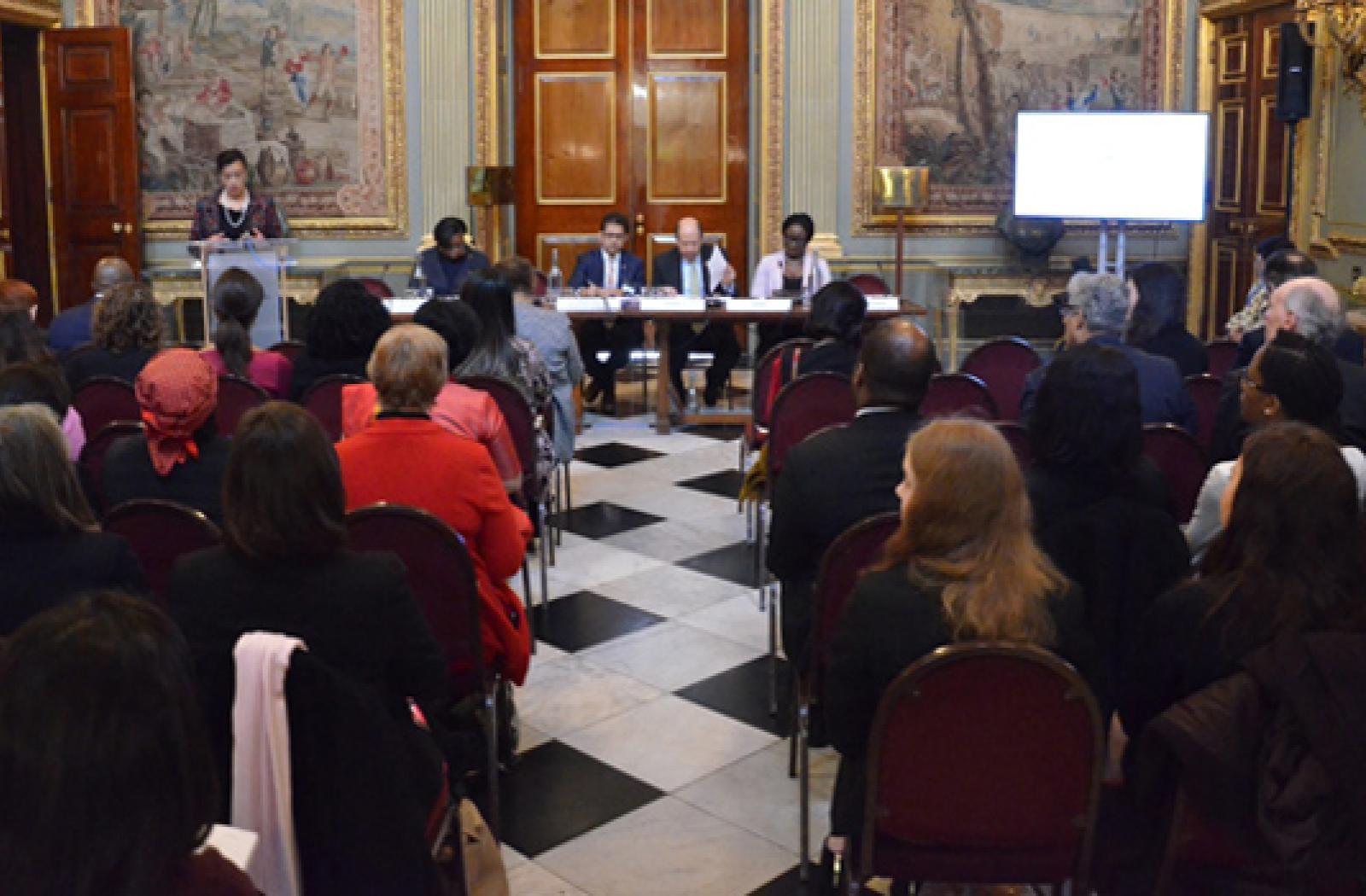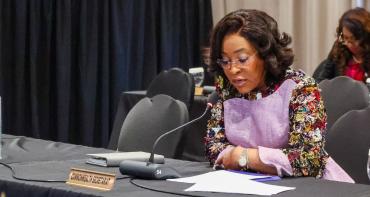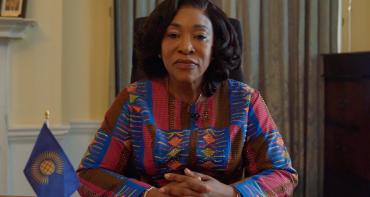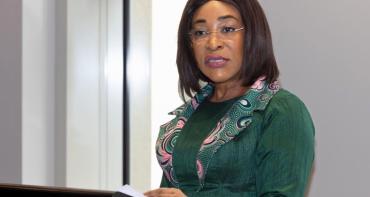High commissioners and women’s rights activists have joined Secretary-General Patricia Scotland to salute the unwavering courage of women in their struggle for equality.

High commissioners and women’s rights activists have joined Secretary-General Patricia Scotland to salute the unwavering courage of women in their struggle for equality.
They were gathered at Marlborough House to mark International Women’s Day 2019. The event celebrated female achievements that have paved the way for other women while calling for urgent action to eliminate barriers that still hinder women’s social, economic and political progress.
Welcoming the guests to the historic headquarters of the Commonwealth in London, Nabeel Goheer, Commonwealth Assistant Secretary-General, highlighted how the Commonwealth is led by three visionary women:
- Queen Elizabeth II, Head of the Commonwealth;
- Theresa May, Commonwealth Chair-In-Office; and
- Patricia Scotland QC, Secretary-General of the Commonwealth.
Following his remarks, a panel discussion on “levelling the law for women’s equality in the Commonwealth” considered how reforming discriminatory laws can increase women’s full participation in every area of life. Five high commissioners from Africa, Asia, the Caribbean, Europe, and the Pacific gave insights into how their countries are introducing laws and programmes that will help women benefit from equality, democracy and development.
The Secretary-General opened the discussion and committed to redouble her efforts towards removing the obstacles which still impede women’s full and equal participation at various levels.
She said: “The elimination of discriminatory laws is fundamental to achieving gender equality – a requirement for realising the transformative ambitions of the 2030 Agenda for Sustainable Development.
“At the Commonwealth Secretariat, in support of all our member countries, and in partnership with UN Women and other development partners, we work towards levelling the law for women’s equality in the Commonwealth and globally.”
She called for decisive and swift action to achieve the 2030 Agenda. The High Commissioner of the Solomon Islands, Eliam Tangirongo, echoed these comments, adding that “cultural traditions and religious beliefs” are two challenges that hinder women’s access to justice and their full participation in democracy and development in his country. He observed that his country has introduced new laws and regulations such as a family protection act and justice for the poor to ensure women have equitable access to justice.
The High Commissioner of Cyprus, Euripides Evriviades, expressed great concern over increasing domestic violence. He said: “Women often do not report domestic abuse due to social stigma associated with it. The government of Cyprus has started new initiatives such as ‘Women House’ to provide survivors with services such as legal advice and trained police officers, to handle such cases so women are confident to report.”
Stressing the importance of enabling women to take charge of decision-making, Saida Muna Tasneem, the High Commissioner of Bangladesh, presented her country’s successful programmes. She said strengthening women’s access to loans will make then economically independent and more likely to venture into entrepreneurship.
She added: “Banks in Bangladesh are conditioned to give 15 per cent loans to women. This is why 45 per cent of entrepreneurial ventures are led by women in Bangladesh.”
Focusing on ‘misusing faith’, the High Commissioner of Antigua and Barbuda, Karen-Mae Hill, emphasised the role of faith leaders. She said: “[faith] leaders often order a woman to obey and stay with her abusive partner when she seeks help. She ends up suffering more abuse and as I have seen in some cases, being infected with HIV/AIDs.”
Following the panel discussion, guests raised their concerns which hinder women’s ability to access justice which include:
- ignorance of laws promoting women’s access to justice;
- socio-cultural norms such as widowhood rights and lack of land rights;
- poverty which enables them to pay for lawyers;
- stigma in reporting cases of sexual violence; and
- enforcement of law and insufficient budget to support state-owned institutions and agencies.
The event also marked the centenary of the Sex Disqualification (Removal) Act in the UK, which paved the way for British women to practice law as lawyers. Setting this milestone in a pan-Commonwealth context, lawyers currently working at the Commonwealth, read the success stories of women who were the first lawyers to be appointed in their Commonwealth countries.
To close the event both speakers and guests collectively pledged to carry forward their commitment to women and girls’ rights until they are fully and universally realised.



